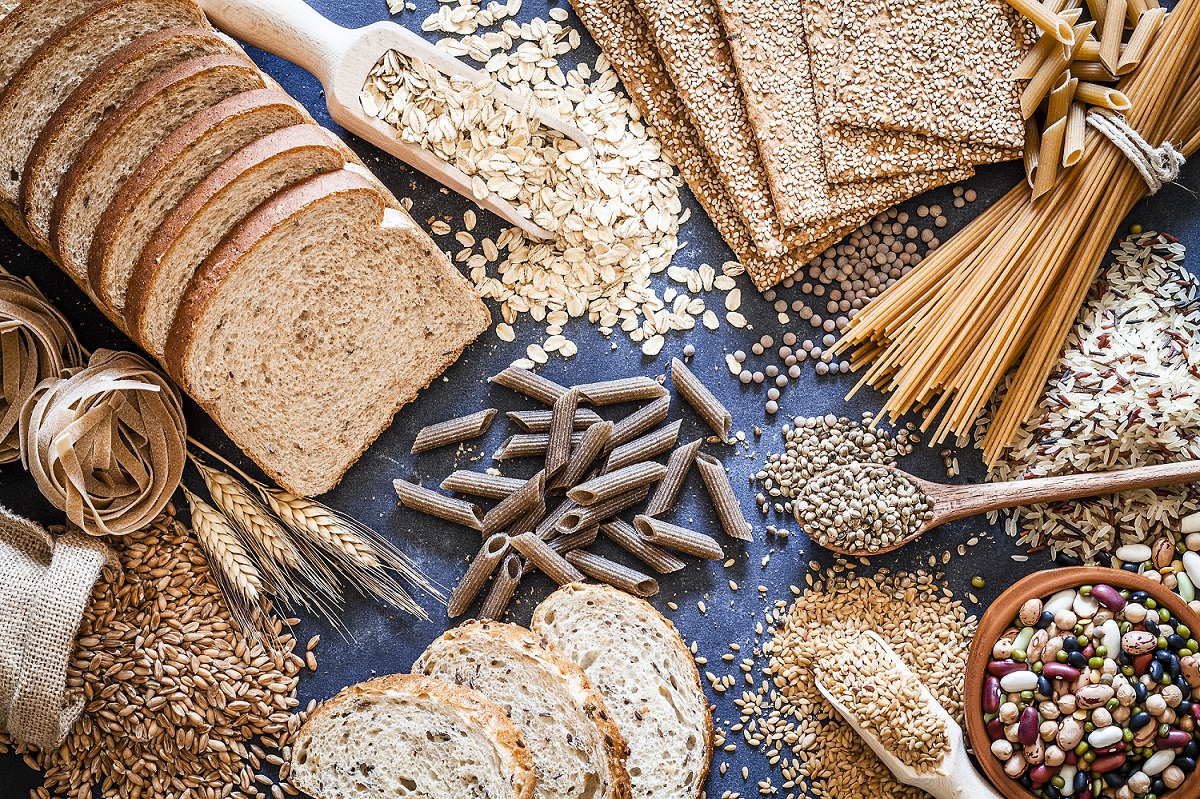Irish Consumers Urged To Eat More Fibre

Only up to 20% of adult population meeting daily targets
New #SwitchToWholeGrains campaign launched to challenge consumers to switch to a healthier diet
Recent studies have unveiled that many people in Ireland are not meeting recommended fibre intake, which is crucial for preventing chronic diseases*.
How Eating More Whole Grains Could Help You Live Longer
Could a simple switch to whole grains help you add years to your life? A report published earlier this year in the European Journal of Nutrition suggests so. According to the study, men who consumed the most whole grains in mid-life lived, on average, a year longer without disease than those who consumed the fewest whole grains. The findings go even further, indicating that higher intake of whole grains in mid-life is associated with healthier aging up to 20 years down the line.
But with only up to eight per cent of the UK adult population meeting recommended fibre intake, there’s a pressing need for change. In response, the European Food Information Council (EUFIC) has launched the #SwitchToWholeGrains campaign ahead of International Whole Grains Day on November 19, aiming to make whole grains an everyday part of our diets. Let’s take a closer look at how whole grains support long-term health and get some easy tips from an EUFIC expert to help you incorporate these nutrient-rich foods into your meals.
Why Whole Grains Are Key to Healthier Aging
Whole grains like oats, brown rice, quinoa, and whole wheat offer more than just fibre—they can provide up to 75 per cent more nutrients than their refined counterparts. Packed with vitamins, minerals, and antioxidants, whole grains are a powerhouse for overall health. Studies have shown that people who consume at least 50 grams of whole grains daily have a 25 per cent lower risk of developing type 2 diabetes, a 20 per cent reduced risk of cardiovascular mortality, a 12 per cent reduction in cancer mortality, and a 15 per cent decrease in total mortality.
Carolin Sluyter, Chair of the Whole Grain Initiative’s Governing Board, explains, “Decades of nutrition research have clearly demonstrated the link between increased whole grain consumption and reduced risk of many diseases, including heart disease, type 2 diabetes, and certain cancers. Yet, despite this evidence, populations worldwide still struggle to meet recommended levels of intake.”
The Science Behind Whole Grains and Longevity
Whole grains are rich in fibre, essential for digestive health and regulating blood sugar levels. Additionally, they contain beneficial plant compounds, such as antioxidants and phytochemicals, which have anti-inflammatory properties. When combined, these nutrients contribute to improved heart health, reduced cancer risk, and even support cognitive function in later years.
A major factor behind these health benefits is the impact of whole grains on inflammation and oxidative stress—two processes that contribute to aging and the development of chronic diseases. Whole grains help lower inflammation by reducing cholesterol levels and supporting gut health, which plays a crucial role in immune function and overall health.
“Whole grains are essentially nature’s health boosters,” says Carlos Abundancia, Outreach Area Lead at EUFIC. “Their unique composition not only benefits individual organs but contributes to overall well-being, helping people maintain healthier, longer lives. Our latest campaign aims to show how making simple swaps, like choosing whole grain bread or pasta, can have profound effects.”
The #SwitchToWholeGrains Campaign: Making Change Easy
To raise awareness and help people make this dietary change, EUFIC has launched the #SwitchToWholeGrains campaign. The initiative includes a four-week social media challenge where participants are encouraged to share their healthy whole-grain swaps. Influencers, chefs, and nutritionists are involved, offering tips and recipes to inspire people to make the switch from refined grains to whole grains.
With engaging resources like chef-created recipes, interactive quizzes, and easy-to-understand infographics, the campaign addresses common barriers to consuming whole grains, including lack of knowledge about identifying and preparing these foods.
Chris Seal, Emeritus Professor of Food & Human Nutrition at Newcastle University, emphasises the importance of this effort: “We are at a critical point with our low fibre intake in the UK. Small dietary changes can lead to big improvements in health outcomes, and campaigns like #SwitchToWholeGrains provide the push people need to act.”
Simple Tips for Adding Whole Grains to Your Diet
Whole grains don’t need to be complicated to incorporate. EUFIC experts share some clever hacks to add more whole grains to your diet with minimal effort:
- Switch Your Staples
Swap white bread, pasta, and rice for whole grain versions. Whole grain pasta or brown rice are excellent bases for your meals and can be used just like their refined counterparts. - Boost Your Breakfast
Start your day with fibre-rich whole grains by choosing oatmeal or whole grain cereals. Adding toppings like chia seeds or flaxseeds to yogurt or cereal will increase your fibre intake and add beneficial omega-3s. - Snack Smart
Opt for whole grain snacks, such as popcorn (without butter or salt), whole grain crackers, or oat bars. These choices help keep you fuller for longer, reducing unhealthy cravings. - Use Ancient Grains in Salads
Add grains like quinoa, bulgur, or farro to salads. Not only do they provide texture and flavour, but they also pack a punch of nutrients and protein that help make salads more filling and satisfying. - Experiment with Whole Grain Flours
Try replacing some of the white flour in your baking with whole grain flour, such as whole spelt or oat flour. It can enhance the nutritional profile of your baked goods without drastically changing the flavour. - Add to Soups and Stews
Stir in whole grain barley, brown rice, or quinoa to soups and stews for extra fibre and nutrients. These grains add a comforting texture and make the dishes more filling.
Beyond Health: Whole Grains and Sustainability
The campaign highlights an additional benefit of whole grains: their positive environmental impact. Whole grains require less processing than refined grains, saving energy and reducing waste. By choosing whole grains, you’re not only making a healthier choice for yourself but also supporting sustainable food practices.
Join the #SwitchToWholeGrains Challenge
Ready to get started? Visit www.switchtowholegrains.com/pledge to join the #SwitchToWholeGrains movement. The website offers a wealth of information and resources, from quizzes that help you identify whole grain products to chef-designed recipes that make healthy eating delicious and accessible.
With such clear health benefits and easy ways to incorporate whole grains into everyday meals, adding more of these nutrient-dense foods to your diet might just be the simplest—and most impactful—change you can make for your long-term health. Join the challenge and start adding years to your life, one grain at a time.







